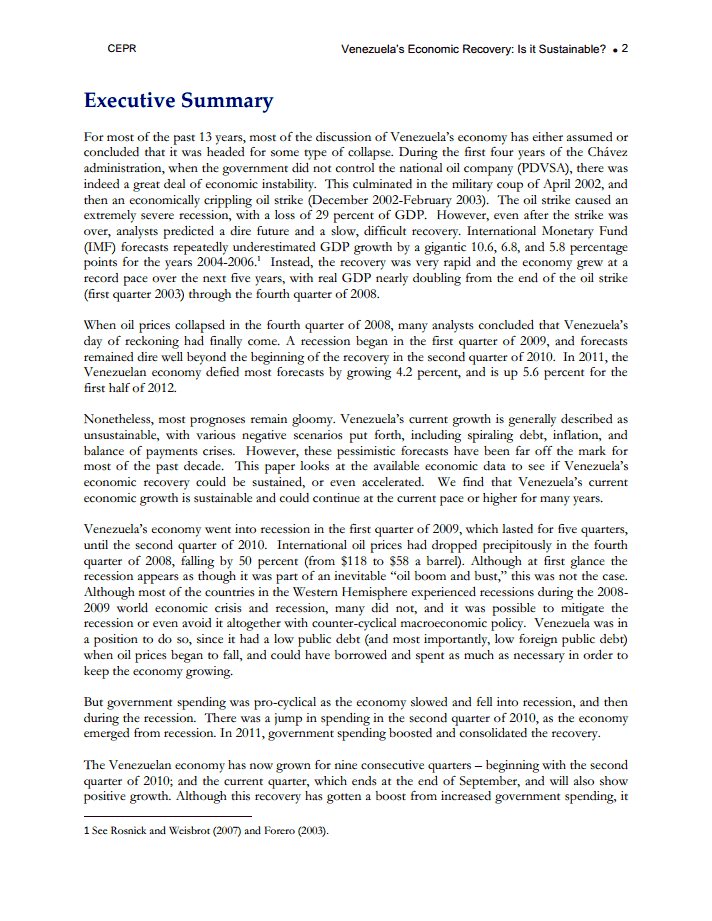Gas is cheap in Venezuela because it comes from a government owned company. They sell it for less than it costs to make. Many authoritarian governments do that. It is the modern form of 'bread and circuses'.
That does mean they skimp on a lot of things. I think that every governement owned oil company, except, I think Norway, are seeing reduced production. It is hated 'big oil' that spends money on developing ways of increasing oil and gas production.
...
That is the trade off for cheap gasoline.
[...]
So the govt in Venezuela is selling gas for less than it costs to produce across the board, is it? Not to mention 'authoritarian'. I think you might look a little closer to home for that realisation.
Here's what Jimmy Carter has to say about Venezuelan electoral practice:
http://venezuelanalysis.com/news/7272
So when you said 'authoritarian', you meant 'committed to democratic principles', yes?External Quote:Mérida, 21st September 2012 (Venezuelanalysis.com) – Former US President Jimmy Carter has declared that Venezuela's electoral system is the best in the world.
Speaking at an annual event last week in Atlanta for his Carter Centre foundation, the politician-turned philanthropist stated, "As a matter of fact, of the 92 elections that we've monitored, I would say the election process in Venezuela is the best in the world."
If you prefer a more 'conservative' view [...], then how about this:
Chavez was re-elected three times; survived a CIA backed coup attempt in 2002 because the people came out on the streets and said they weren't having it. Imagine? And that's all you can do in the US....The Chavez govt nationalised the oil industry, rightly, and the owners were paid market price. The dividends from oil were used to improve the lot of the poorest, to begin. I'm not going to give you the lesson you need on all this, though. What you might do, until you learn up a bit, is desist from presenting fiction as fact and learn about what you're saying before you say it.External Quote:The U.S. Should Learn From Venezuela How to Hold Elections - Forbes
www.forbes.com/.../forbesleadershipforum/.../the-u-s-should-learn-fr...
Nov 6, 2012 – Former U.S. President Jimmy Carter has called the Venezuelan electoral technology a model for other democracies. Last month, as ...
Venezuela, like everywhere else caught in the shitstorm caused by criminal bankers and profiteers in 2008, has had its economic problems - but unlike the crippled US 'economy', the Chavista govt spent its way out of trouble and in the last twelve months the economy has grown by 4.2 percent.
[..] more here, [...] from the Center for Economic and Policy Research, Washington, DC:
https://docs.google.com/viewer?a=v&...0NyrNW&sig=AHIEtbQGFS4KnQH4AaLQ8Y2HyBNal1t-3w
[...]External Quote:

Last edited by a moderator:
